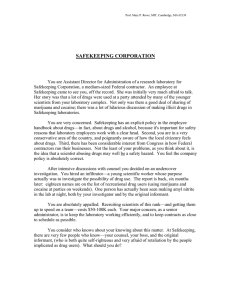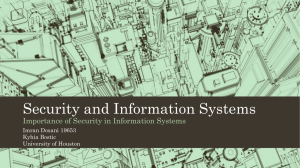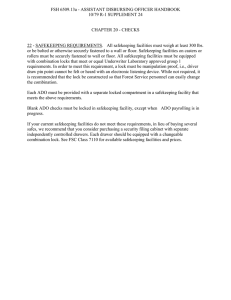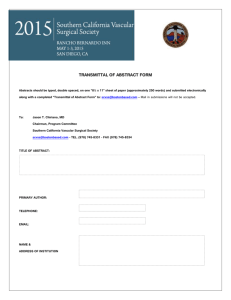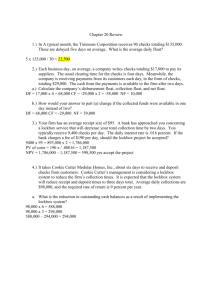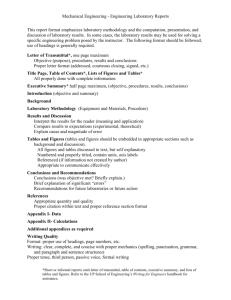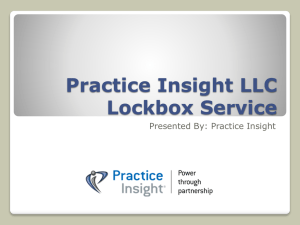FSH 6509.14 - COLLECTION OFFICER HANDBOOK R-1 SUPPLEMENT 5 EFFECTIVE 02/25/91
advertisement
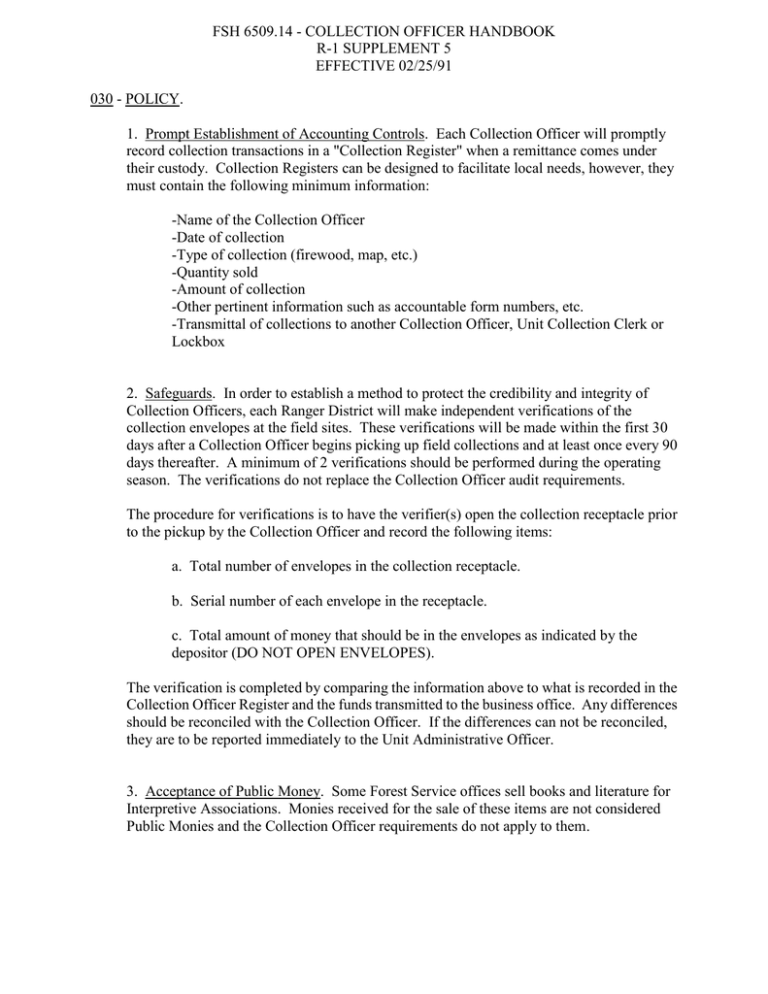
FSH 6509.14 - COLLECTION OFFICER HANDBOOK R-1 SUPPLEMENT 5 EFFECTIVE 02/25/91 030 - POLICY. 1. Prompt Establishment of Accounting Controls. Each Collection Officer will promptly record collection transactions in a "Collection Register" when a remittance comes under their custody. Collection Registers can be designed to facilitate local needs, however, they must contain the following minimum information: -Name of the Collection Officer -Date of collection -Type of collection (firewood, map, etc.) -Quantity sold -Amount of collection -Other pertinent information such as accountable form numbers, etc. -Transmittal of collections to another Collection Officer, Unit Collection Clerk or Lockbox 2. Safeguards. In order to establish a method to protect the credibility and integrity of Collection Officers, each Ranger District will make independent verifications of the collection envelopes at the field sites. These verifications will be made within the first 30 days after a Collection Officer begins picking up field collections and at least once every 90 days thereafter. A minimum of 2 verifications should be performed during the operating season. The verifications do not replace the Collection Officer audit requirements. The procedure for verifications is to have the verifier(s) open the collection receptacle prior to the pickup by the Collection Officer and record the following items: a. Total number of envelopes in the collection receptacle. b. Serial number of each envelope in the receptacle. c. Total amount of money that should be in the envelopes as indicated by the depositor (DO NOT OPEN ENVELOPES). The verification is completed by comparing the information above to what is recorded in the Collection Officer Register and the funds transmitted to the business office. Any differences should be reconciled with the Collection Officer. If the differences can not be reconciled, they are to be reported immediately to the Unit Administrative Officer. 3. Acceptance of Public Money. Some Forest Service offices sell books and literature for Interpretive Associations. Monies received for the sale of these items are not considered Public Monies and the Collection Officer requirements do not apply to them. COLLECTION OFFICER HANDBOOK R-1 SUPPLEMENT 5 EFFECTIVE 02/25/91 4. Safekeeping Facilities and Access. Bar locked or combination-locked steel filing cabinets are the minimum safekeeping facilities where small sums (less than $500) are kept overnight. Where large sums of money ($500 or more) are kept overnight, a changeable combination safe with a lock meeting the Underwriter Laboratory class 5 requirements must be provided. The safe must weigh 300 lbs. or be bolted or securely fastened to the floor or wall. Safes on rollers or casters must also be bolted or securely fastened to the floor or wall. A fireproof (insulated) steel file cabinet with a dial combination lock qualifies as a safe (Ref. FSM 6530.3). Each Collection Officer must be provided a separate safekeeping facility or separate locking compartment or drawer within a safekeeping facility. Each Collection Officer must have exclusive control of the access to their safekeeping facility or to their compartment or drawer within the same facility. Funds must be kept locked up except when the Collection Officer is conducting collection operations involving such monies. In the event the safekeeping facility must be opened during the absence of the Collection Officer, the Forest Administrative Officer may be contacted for the combination or key. Upon the return of the Collection Officer, the combination must be changed and the new combination given to the Forest Administrative Officer in a sealed, signed and dated envelope (for a duplicate key, place in a sealed, signed and dated envelope). Some Collection Officers may conduct transactions away from their primary safekeeping facilities (ie. the sale of maps, firewood permits, etc. in the field). If this occurs, an alternate safekeeping facility may be designated for temporary storage by the Regional Group Leader for Review and Analysis. 5. Transmittal of Cash and Remittances to Unit Collection Clerk. Most Collection Officers transmit to Lockbox rather than the Unit Collection Clerk. The frequency requirements and method of transmittal requirements apply equally to Lockbox and the Unit Collection Clerk. a. Frequency of Transmittal (1). Daily, whenever amounts on hand reaches $500, if the minimum safekeeping facilities are used. Otherwise, daily, whenever amounts on hand reaches $5000. (2). No less frequently than the last work day of each month, regardless of the amount accumulated. b. Method of Transmittal (1). The same restrictions on the method of transmittal apply to Lockbox as to the Unit Collection Clerk. FSH 6509.14 - COLLECTION OFFICER HANDBOOK R-1 SUPPLEMENT 5 EFFECTIVE 02/25/91 050 - DEFINITIONS. 9. Lockbox. Lockbox is a Treasury cash management initiative. All Federal Agencies are required to use it. It is a process whereby customers send their payments to a post office box to be picked up and processed by a commercial bank. Lockbox is the designated depository for Forest Service collections. The Lockbox address for Region 1 is: Unit Collection Officer, Forest Service Northern Region File No. 51653 P. O. Box 60000 San Francisco, CA 94160-1653
